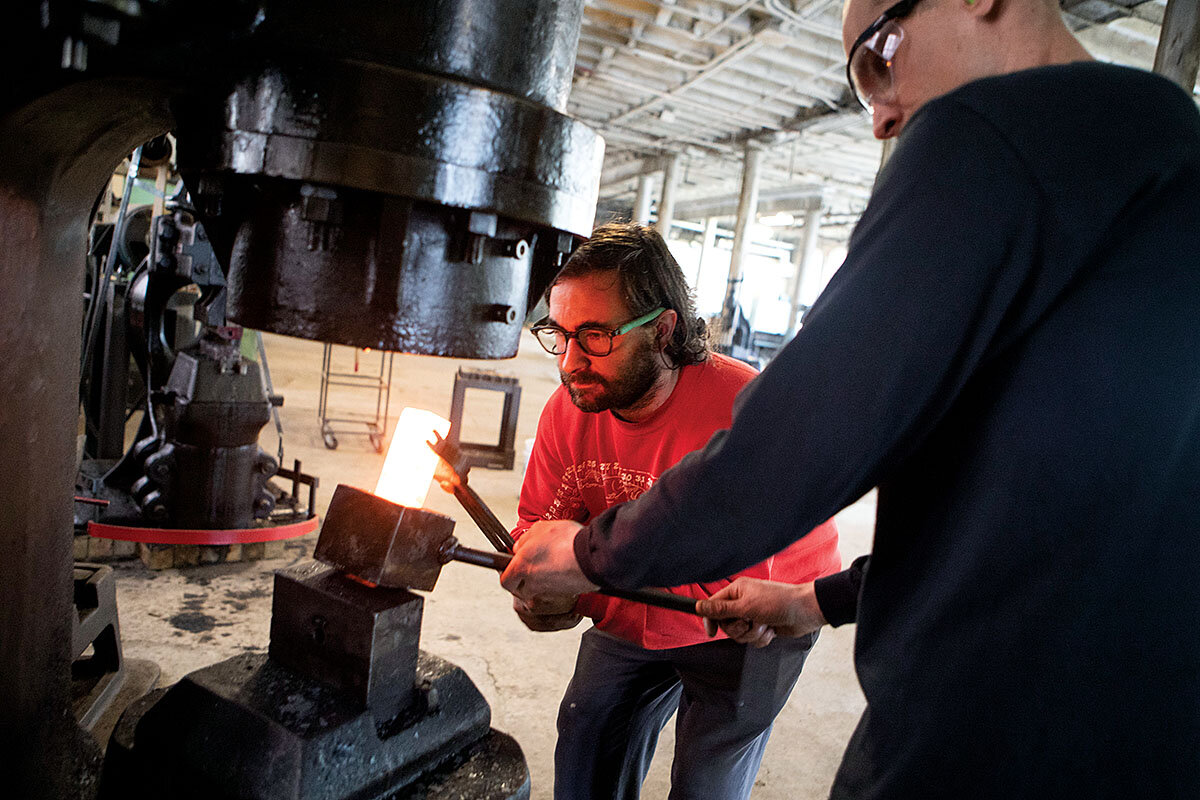It’s a bit counterintuitive. But Iran’s downing of a U.S. drone and the U.S. decision not to retaliate might be giving Iran room to move toward broader easing of tensions.
Monitor Daily Podcast
- Follow us:
 Clayton Collins
Clayton Collins
Welcome to your Daily. Today we look at Tehran’s perspective on the current standoff, cracks in Turkey’s power structure, a response to media suppression in Eastern Europe, personal decisions about the impact of air travel, and how an old mill town sees its future in … metalsmithing.
First, a check on the seasonal reach to unplug.
Today begins the first full week of Northern Hemisphere summer, the start of the languid days of disconnect for worker bees who are .
Each year the tension between tech reliance and resistance builds. Never mind work email. It’s to dodge the unrelenting time suck of tech, often cloaked as mere efficiency.��The purveyors are aggressive: Facebook wants to be . Uber wants to own transportation . Google seems inclined to , Instagram to .��
But, as in physics, reaction mirrors action. Simplicity movements aren’t new. But today come stories of deep analog pushbacks. , electricity, and wherever it can, money. Others create on remote islands.
One island-life story shows a microculture really leaning in: A few hundred people off the coast of Norway – a place sunlit around the clock in summer owing to latitude – only half-jokingly take aim at an even more fundamental construct: They’re angling for a time-free zone.
Off the grid? Try off the clock. “All over the world, people are characterized by stress and depression,” . “In many cases this can be linked to the feeling of being trapped by the clock.”
Make sure to put in for some vacation this summer.










